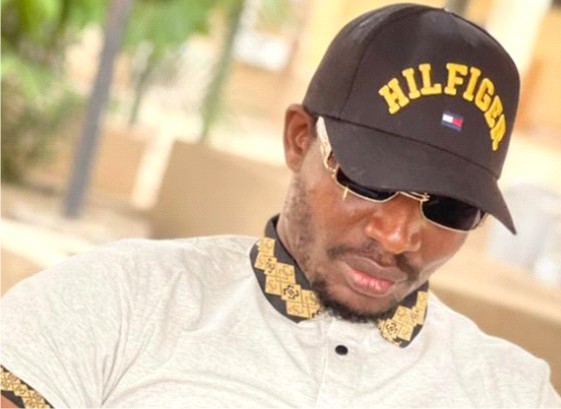Social media and suicidal behaviour among youths
Social media and suicidal behaviour among youths
By Saheed Ibrahim
|
In the last few years, suicidal behaviours – ideation, plan, attempt and fatal suicide – have been on the increase all over the world. The World Health Organisation (WHO) has described suicide as a health-related behaviour and it is one of the 20 leading causes of death all over the world, killing about 800,000 people every year. Aside the actual suicide, which is called fatal suicide, suicidal ideation, plan and attempt are also very common.
Many reasons can be adduced to why people commit suicide. Stories, reports and literature abound have revealed that people commit suicide for various reasons, such as: heartbreak, financial problem, disappointment, shame, abuse, conflict and many other reasons. These causes are categorized as social, psychological, biological, genetic and medical. Whatever the cause is, suicidal behaviours are now recurrent phenomena in the world.
In Nigeria, reports have shown that suicidal behaviours are now on the increase in the country. As these behaviours continue to rise, many of the cases are grossly under reported because the country lacks meaningful statistical data of suicide cases and their causes. Consequently, this has prevented proper address of the situation.
What is very disheartening about this is the fact that suicidal behaviours are common among the youth between ages 18 and 35. WHO’s reports on suicide revealed that it is the second cause of death among the youth worldwide, after road accident.
Between 2018 and this year, most victims of suicide in Nigeria were reported to be young adults. Some of the reasons adduced to this by researchers include depression, conduct problems, oppositional defiant disorder, impulse control problems, family disruption, physical abuse, and bullying. Other factors identified are suicidal bombing, terrorism and the social media, which, according to many reports are the causes of copycat behavior among the youth.
The various social media platforms– Facebook, Twitter and others are commonly used by young adults, not only in Nigeria but all over the world. There is no gain saying to say 80% of social media users are young people. Gone are the days where internet service is only accessible using a desktop computer or a laptop; with the proliferation of mobile phones in the contemporary society, access to internet and the social media has become very easy and cheaply.
Despite the many advantages of the social media – connectivity, speedy communication, advertising, advocacy, and so on – scholars have raised ethical, social, psychological and health concerns about the increasing rate of social media use among the youth and several studies conducted in Nigeria and other countries have found strong connection between social media use and suicidal behaviours among the youth.
The media have been adjudged as having the ability to induce copycat behaviours in the users. Copycat behaviours simply refer to emulating the behavior of others. For instance, when a new fashion sense is showcased on the social media, within days, many people in most part of the world tend to copy it in their respective locations.
A look at some recent cases of suicide in Nigeria substantiate the claim that social media may induce suicidal copycat behaviours in the youth.
. A Lagos-based disc jockey, Seun Omogaji, popularly known as DJ XGee committed suicide after posting a suicide note on his Instagram page.
A bank worker, Tolulope Abodunrin, after posting on Twitter that he was plagued by suicidal thoughts, later committed suicide two months after.
A 27 year old final year student of the Faculty of Agriculture at the University of Ilorin, Adigun Emmanuel committed suicide by ingesting a bottle of Sniper (insecticide) because he failed his final year project for the third time due to alleged plagiarism. He had left a post and also a picture of a bottle of Sniperon his social media account.
A 100 – level student of the University of Port Harcourt, Hikmat Gbadamosi also posted a note on her social media account before she ingested Sniper
A final year student of the University of Nigeria, Nsukka ,Chukwuemeka Akachi also committed suicide after stating the reason for his action in a poem he posted on his Facebook account.
Aisha Omolola, a 300 level student of the Ahmadu Bello University, Zaria, also committed suicide in her apartment at the Samaru area of Zaria. She drank Sniper.
Amos Ibrahim, Michael Asiwaju and a Twitter user simply identified as Segun also drank Sniper.Segun, through his Twitter handle @TweetsOfShegun, lamented his many ordeals and family problems on Twitter before he drank sniper. He tweeted thus:
“2015-189; 2016 – 202; 2017 – 233. It is now when people want to send me to school that I will score 167 in UTME? 167? LMFAO. Make I close eyes pick answers sef…Me? 167? Meanwhile, I will be teaching you all how to make tea with Sniper by 9pm live on Twitter…Tune in
These are some of the cases of social media users who engaged in suicidal behaviours after announcing their suicidal ideation and plan on their respective social media accounts.
One suicidal method was common to many of the victims – SNIPER ingestion.
Primarily, Sniper is an insecticide used to kill house pests/insects/rodents but has been found potent to kill humans, this led to the Federal Government, through National Agency for Food and Drug Administration and Control (NAFDAC) to place embargo on the product in the open market.
Several studies have revealed that social media use induce suicidal copycat behavior in the users. The studies revealed that those who use social media often are prone to depression, cyber bullying, social isolation and social comparison.
It was also revealed that suicide victims do go online to find suicide methods to use and reporting suicide cases can lead to increase in the rate of suicidal behaviours.
A psychologist and general mental health practitioner, Mrs Chinelo Olayimika spoke with The Hope and provided insights into the connection between social media and suicidal copycat behaviours among the youth.
According to her, even though there is no clear-cut process showing the link between social media use and suicidal behaviours, there are strong indications that social media predict or influence suicidal behaviours, stating that the reach of the platforms as well as the tendency for the users to compare their lives with that of those they see on the platforms can induce suicidal behaviours in the youth.
“With regards to suicidal behaviours, you will see that as young people are expressing themselves and showing what they want to do and how they feel at a particular time on social media, it sends a prompt to other young people who are suffering or having challenge. It somehow relate to what other people are doing in order to get attention. So, the two have a link
“There are other risk factors that should be considered when talking about the processes involved; some of which are personality and individual differences: they can facilitate the process
“Some people are quite sensitive, some people seek validations from others, some people want to be seen, loved and known and some people want to feel appreciated.
“So when they see that other people are getting more attention with a particular behaviour, they tend to copy such behaviour”, she said.
Mrs Olayimika also identified cognitive factor and social factor as other causes of suicide among Nigerian youth.
“Cognitive factor is about person’s mental processes and interpretation of events. Some people have faulty thought process already and all they just need is social media to trigger this faulty thoughts either to validate or revalidate them
“The social factor relate to what the society is doing. If you watch out now in the Global Village, you will see that there are lots of movements, even games, such as Imomo, that are activated to encourage suicide behavior,” she revealed.
On how to curb the influence of the social media on suicidal behaviours among the youth, she submitted that it may be near impossible to totally curb the influence but it could be reduced.
She warned that journalists should desist from giving out all the details of a suicide case, especially the suicide methods used, as it usually leads to some people with faulty behaviours and faulty interpretation of life events copying those methods to end their own lives.
“For this copycat behaviour, it is an attempt of someone, either by local knowledge or otherwise or depiction from TV or social media especially, the individual wants to replicate what has been done before and this has effect
“What I would say a lot of people actually are going through a lot and the least we can do is to help them and that’s to adopt safe reporting.
“There are better ways of sending out information without giving out too much to people because with my years of experience working with people with depressive disorder and not to forget that mental illness seems to be on top of the reasons why people commit suicide, these people are very sensitive to negative comments and critical comments or anything that may be suggestive.
She however advised that everyone should be cautious and careful about what they say and what they put on social media… because “suicidal behaviour also can be triggered by cyber-bullying, body shaming and so on,”
Mrs Olayimika also noted that there were pressures on the owners of various social media platforms to ensure that sensitive posts are restricted but it may take a while to implement the policy “It is a whole lot of process for the social media service providers to be able to do because no one ever assume that through social media, such menace would arise.
“With the policies that major social media owners are putting in place, sensitive posts may be restricted. I know it is going to take a while before this is actually approved because it is going to go through legal processes and each country will have to develop their own policy as what content should be allowed or not.
” I am hoping that in the nearest future, social media will be safer for our young people, she said.
In addition to her recommendations, parents should also regulate their children’s social media use.
Also, government and the agencies in charge of communication should monitor social media contents in order to detect suicidal ideation and plan on time before they lead to fatal suicide.










